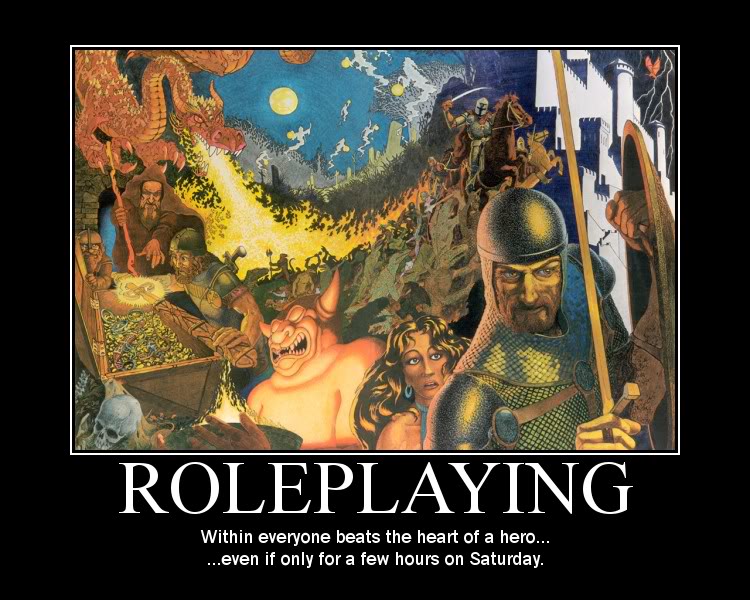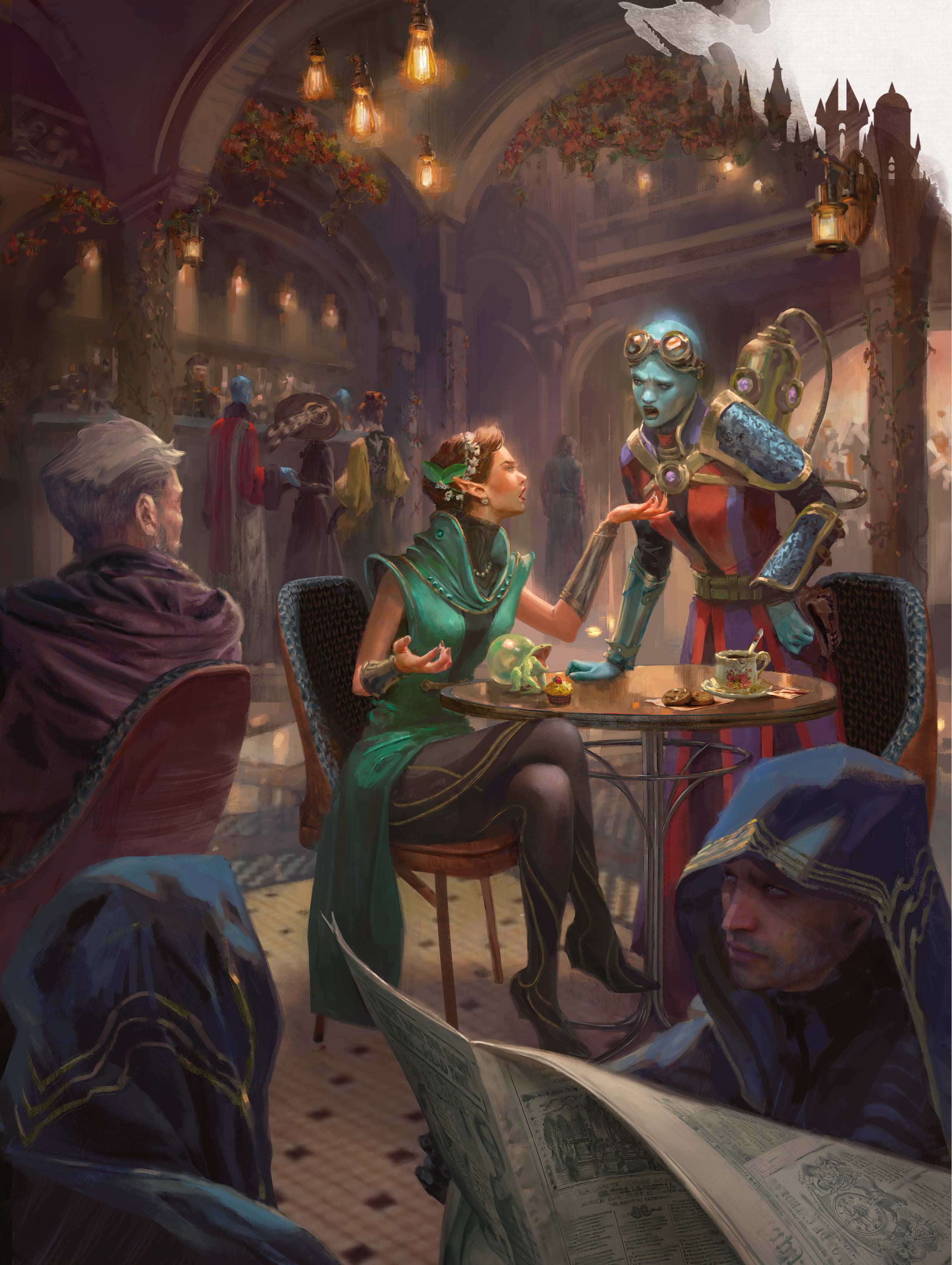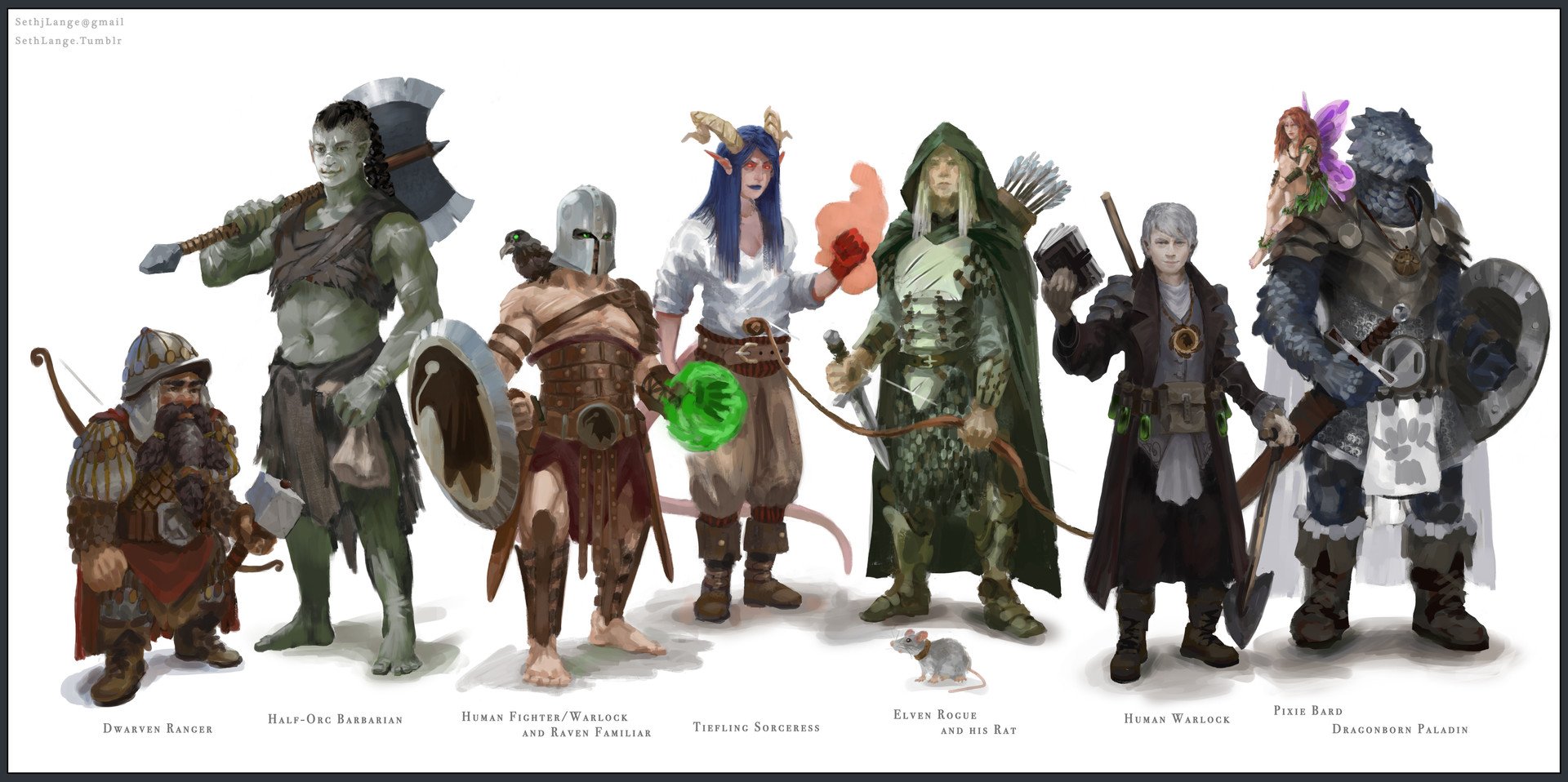
Education Adventures: Is D&D Right for My Kid?
Education Adventures is a column written by educator Megan Hardy. Through the Outschool program, Megan teaches a series of Life Skills courses using fifth edition Dungeons & Dragons. During the six week campaign, heroes head out to save the land from an evil ruler, facing challenges and battles and making friends along the way while learning logic and critical thinking. The campaign is designed specifically for children ages 9-14 and highlights problem solving, logic puzzles and team work while participating in a grand adventure. In the Education Adventures column, Megan shares insights and lessons she learns through teaching D&D for students and their experiences.

The kids of Stranger Things, re-imagined as characters in a Dungeons & Dragons game. [Art by Bob Al-Greene]
Parents ask about D&D for kids
I get about 10-20 emails a day from the parents of my students, and the same questions keep popping up, so in this column I will talk about questions parents often have before starting their children on their future in Dungeons & Dragons. I find that even experienced players ask these questions before enrolling them in my class. It’s interesting to see parents having the same universal questions. Here are the top questions I get from parents and my answers, along with some thoughts of my own.
One question I get a lot is, “My child loves interactive video games, do you think they will like this?” My answer is a big yes. We adults tend to think that video games have dulled our kids imaginations. In my experience, that isn’t true. The majority of my students love video games, and they love D&D. They love them for the same reason. They get to pretend to be someone else and go on an adventure and become a hero. Does this mean that every video game loving child will love D&D? Of course not. However, there is a good chance they will. We tend to put video games and D&D on completely different platforms, but at the end of the day they are both games and are a user driven experience. A parent shouldn’t worry about their child’s love of video games impacting their ability to enjoy D&D.
Another frequently asked question is, “Is my child too young for D&D?” My answer to this, if I’m answering honestly, is that I have no idea. When parents are asking that question, they are asking the wrong question. The better question would be, “Is my child mature enough for D&D?” My daughter has been playing since she was 8 and loves it. I know 10 year olds who can struggle with certain concepts. D&D at its core is a fun adventure game. However, it does require patience and cooperation. You know your child, you know what they can handle. If you have a 7 year old who you think has the maturity to handle it, go for it! But don’t force them when they aren’t ready. I have four kids and can tell you there is no bigger way to get a child to reject something then to force them into it. Don’t turn D&D into a chore. If you are eager to introduce your child to the game, but don’t think they are mature enough to handle it, there are things you can do instead of launching them into a full-fledged game. Get your child the books and let them read about it. Find an age-appropriate stream/podcast and have them watch or listen with you. Take them with you on occasion to your own game and talk about it with them. Then, when they are ready, odds are they come to you ready to play.
Another common question is, “My child is shy, but wants to play. Will she enjoy it?” D&D can be as interactive as you choose. I have some students who turn their camera off and rarely speak, and they are happy with that. There are no set rules about how much you must speak and participate. If you want to stand back and observe more than talk, that’s fine! What makes D&D so wonderful is everyone is allowed to approach the game how they want to approach it. There is no standard “everyone must act this way.” What can make it even better for shy students is that there are perfectly valid character reasons for why they might not be talkative. You can literally put it as a personality trait. There is no reason any students should feel they can’t join in because they think they don’t have the personality for it. That is something that is so important for parents to understand. D&D is a blank canvas for their children, and every player gets to paint the picture they want to paint.
Also, talking about your shy potential player, I have seen so many shy kids come out of their shell. Earlier this week I had a class where one student said he was too shy to turn on the camera at the start of class. By the end of it, he was laughing out loud and he and his new classmates were telling jokes about what they had just done and exchanging strategy ideas. It’s amazing how the nerves can fade away as the game takes hold. I had another class end recently with a shy student (who only participated via typed chat) exchanging his email and contact info with friends he had made over the course of the campaign. I know as a parent that it’s a balancing act with knowing their limits and wanting to let them do something they want. However, if your child is mature enough to come to you and ask to play, don’t let a shy personality be factor in you saying no. Instead, figure out a way to make the game work for your child. As I have said in previous columns, this game can be an amazing outlet for creativity and a boost to self confidence.
Another thing I am often asked is if it’s okay for siblings to play together. I always say yes to this. I have several sets of siblings in my games. This can be beneficial in a few ways. First, it creates a common goal. I have seen siblings cheering each other on and offering support. As a mom, I can tell you that siblings don’t always get along, but I have yet to see any sibling conflict in game. This game by its very nature is a bonding experience. At the same time, they play their character their way. In my experience, siblings play incredibly different types of character, with different approaches. Often when siblings have differences it creates conflict. In D&D, those differences can be appreciated. The differences make for a stronger group and the kids can see that, so when parents have concerns about their children joining the game together, I tell them not to worry. In fact, it is usually a great bonding experience.
Now one piece of advice I would give to every parent about having their child start their first experience with D&D is to remember that it is their experience. So many of us are so eager to share the things we love with our kids. Many times it’s reliving the past. Watching them do what you did at their age or a little older can be like reliving a memory. However, we as parents need to make sure we are standing back and letting them have the experience they want. Don’t tell them the “right” way to handle a situation. Don’t tell how they “should’ve” handled the situation. Let them come to their own conclusions.
On the flip side of it, I have to admit that some of my favorite experiences while teaching have been when parents sit in with their kids. I can hear them laughing in the background or see the smiles on their faces as they watch their child do something amazing. However, that’s different. D&D can be an amazing shared experience between parent and child. Something that they can do together well into adulthood. That only happens when parents let their child have an equal experience. So laugh at your child’s antics, give praise for creative thinking, and talk about their characters. Just don’t control their game play. Much like pushing the game on them before they are ready, taking over their experience will surely leave a sour a taste in their mouth.
As I finish writing this column, I have an inbox full of parent questions and requests to answer. I’m sure in at least one of them will be an above mentioned question and I am so happy. By asking the question, that means the parent is actively taking the first step to starting their child on their journey into the world of D&D.
So, parents, keep those questions coming. Always feel free to ask experienced players what you want about playing the game, because from my experience your kids are amazing D&D players. By asking the questions, you are opening the door to a world of fun for your child that just might last a lifetime.
Dungeons & Dragons classes
- Dungeons and Dragons: A Fun Adventure
- Dungeons & Dragons Fun Adventure Part 2: The Revenge of Lolth
- Dungeons & Dragons: Creative Cooperative Roleplaying
- Dungeons & Dragons for Teens
- Sleepy Hollow, A Special Dungeons & Dragons Adventure
- The Giant’s Quest: A Dungeons & Dragons Campaign
Like this?
Did you enjoy this post? Nerdarchy’s awesome volunteer staff of writers and editors do their best to create engaging, useful and fun content to share. If you like what you find here on our site, consider patronizing us in a good way through Patreon.
On top of reaching our goal of paying our writers, pledging gets you exclusive monthly content for your D&D game, opportunities to game with Nerdarchy, access to patron-only channels on our Discord and more.
With your generous support we’ll continue to create quality content between our YouTube channel and blog, invest in equipment to increase recording quality, and keep creating original publications and products to enhance your tabletop roleplaying and gaming experience.
Thank you for your consideration and as always, until next time stay nerdy!








No Comments